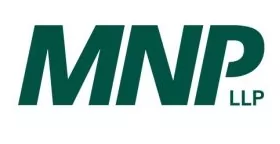Just thinking about selling or retiring from your business can cause anxiety—and with it comes a host of questions: Will I have enough to retire? Are my kids or managers the right next owners? How would they pay? What would I do every day if I didn't have my business? The questions can weigh heavily on any business owner. To complicate matters, we operate in a continually changing business environment that brings great uncertainty about the future. The prospects for transitioning seem more uncertain than ever.
The truth is, no one knows exactly what will happen, but two things are for certain:
- Economic cycles rise and fall
- Strategic thinkers act differently than the majority – especially in times of uncertainty.
If you're looking for a new way to consider exiting from, or transitioning from your business, you may want to consider a phased buyout.
A phased buyout is a buyout by family or management over time. The best phased buyouts are based on getting prospective owners into an ownership position for reasonable cost and then selling more shares as the value of the company increases. In fact, phased buy outs offer many strategic advantages, including turning lower business values in low economic cycles, into an advantage. What could be more strategic than that?
Here are some ways a phased buyouts cut through the noise and turn today's conditions into opportunity.
|
The Noise |
The Opportunity |
| 1. The economic slowdown |
Lower business values mean that key managers can "get in" for less, and owners will (all in) get more. Selling the first 10%, 20% or 25% at a lower value gets good people into the ownership circle, ties them to the company, and commits them to growing the company so that the founder's next and last 10%, 20% 0r 25% will sell for incrementally much more than the first. The overall result will be more money in the pocket of the seller, continuance of the business, and extraordinary opportunity for a new generation of owners. |
| 2. Management buyouts are great for others, but my managers don't have any money. |
There are more financing options available today than ever before. Many "traditional" and non-traditional lenders have recognized this trend and have created loan programs that are tailor made for buyout transactions. Rather than being "security based" they are based on cash flow and focused on the future of the business. |
| 3. There's a risk of the whole deal crashing and the original owner having to move back in and run the business. |
Every transaction carries some risk, but the secret to a successful buyout is in the preparation, planning and structuring of the deal (from financial, leadership, strategic, and tax perspectives) BEFORE any shares transfer and the ongoing monitoring and management of the buyout.
|
| 4. I don't have the
right people in place who could run the business without me.
|
One of the great things about a downturn is that talented people become available. Now is a great time to "upgrade" the people in your company, and hire managers who have what it takes to be leaders and potential owners.
Yet another perspective is that smaller and weaker competitors may be open to merger or acquisition proposals. Your next shareholder might be working for your competitor right now |
And finally:
| 5. I'm not ready to do this, because I don't know what I'll do when I exit my business |
Phased buyouts mean an ongoing (albeit reducing) level of involvement by the founding owner, over a period of time determined by the owner. For owners who are looking for more free time while still being involved and having control over their businesses for a time, this option is ideal. |
At the risk of sounding cliché, it was Winston Churchill who said, "Never let a good crisis go to waste". Phased Buyouts turn noise into opportunity, and as far as the timing, it's never been better.
The content of this article is intended to provide a general guide to the subject matter. Specialist advice should be sought about your specific circumstances.

